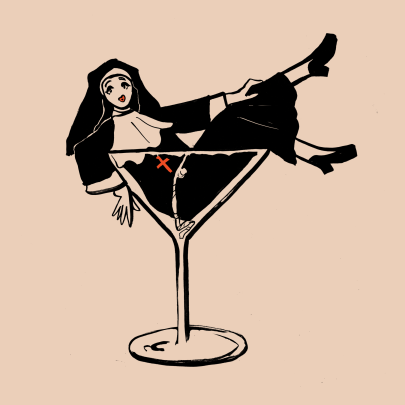Mar 6, 2013 Theatre
Kila Kokonut Krew, directed by Anapela Polataivao and Vela Manusaute
Q Theatre
Two years ago at the Mangere Arts Centre I saw a pretty fine production of a new musical. The Factory mixed a story of immigrant Samoan factory workers with a loud and proud bunch of songs, and the result was highly entertaining and more than a touch provocative. It was a good night out.
That show has now been reworked, with the core creative team of director Anapela Polataivao and writer/director Vela Manusaute now joined by a new musical director, Tama Waipara, and a new production crew. The result is magnificent.
I’ll go further. I’d guess The Factory will become a new pillar of New Zealand theatre: a classic that is performed frequently and inspires a generation of actors, singers, writers – and schoolkids. It will surely become a staple in school productions. To see it in this festival is to witness something very special. If they sell out before you can get a ticket, go down on your knees and beg.
It’s not great art. To start with, this story of a father and daughter who arrive in south Auckland in the 1970s, to join the Samoan workforce in a clothing factory run by an unreconstituted racist, is full of sentimental tropes. The girl and the liberal son of the boss fall in love; they both pine for their absent mothers; the boss is cartoonishly mean; the factory girls are happy-go-lucky but not above moments of spite; the Romeo-and-Juliettish thread provides the structure and conflict, but only in the most obvious way. They’re not doing anything new, or dangerous, or challenging, with any of this.
Then there’s the music, which sticks mostly to a readily accessible mash-up of old showtunes, disco and Polynesian melodies.
All of which is to say that The Factory pushes all the right buttons for a conventional musical. It lays out its provenance, settles you in and then proceeds to entertain your socks off.
What’s so good? So many things. There are 14 people on stage (with another five musicians up on the balcony), and hardly any of them strikes a false or awkward note all night. It’s a truly splendid ensemble, and that makes them, as a group, way bigger than the sum of their parts.
The many dance sequences are seductively charming and wildly entertaining. And the singing! Aleni Tufuga, as the father, produces a richly moving baritone, singing in Samoan of his wife and the life he has left behind. Edward Laurenson, as the palagi son, has a lovely clear tenor, while Lindah Lepou achieves pathos and beauty as a fa’afafine.
Soaring above them all is Milly Grant-Koria in the lead role of Losa. She’s a revelation, with a pure, strong clarion of a voice, a punchy delivery style and, to back that up, a whole bunch of mean dance moves.
As for the music, that mash-up may be easy listening but it has some moments of real triumph, including the spikily wistful Niu Sula and, even more, the hymn-like Samoana. New standards in the making.
It’s also slyly clever. The disco Waipara has shovelled in is very cool and, near the end, he even adds a hint of Crosby Stills and Nash. Wow. Hippie harmonies and Donna Summer, synthesised in a Pacific blend, held together by the glue of happiness…
Beyond all that, what’s so good about The Factory is the ring of truth. This is a play by people bearing witness – to the sacrifices of their parents, made in a country that took from them what it wanted and blamed them for everything it could. Sacrifices made so their children could shine. This show is a part of that shining.
Arts Festival director Carla van Zon told Metro last year she wanted to create a festival that was not just the next staging post on the international circuit, but would have an inclusive programme for Aucklanders and would give pride of place to local work. The Factory is the early marker of a great success.
Until March 11. Photo: Stephen Langdon for Metro.





